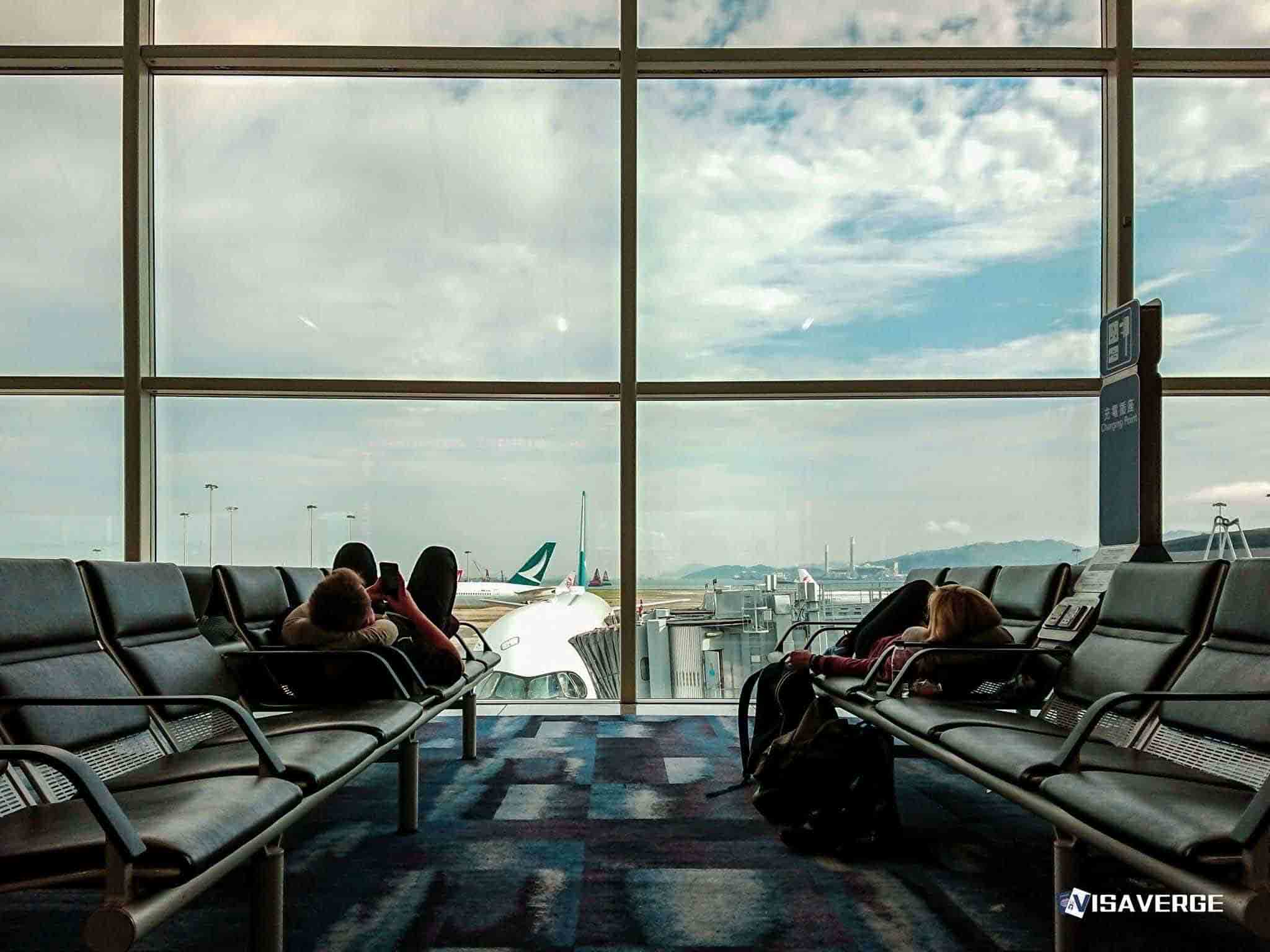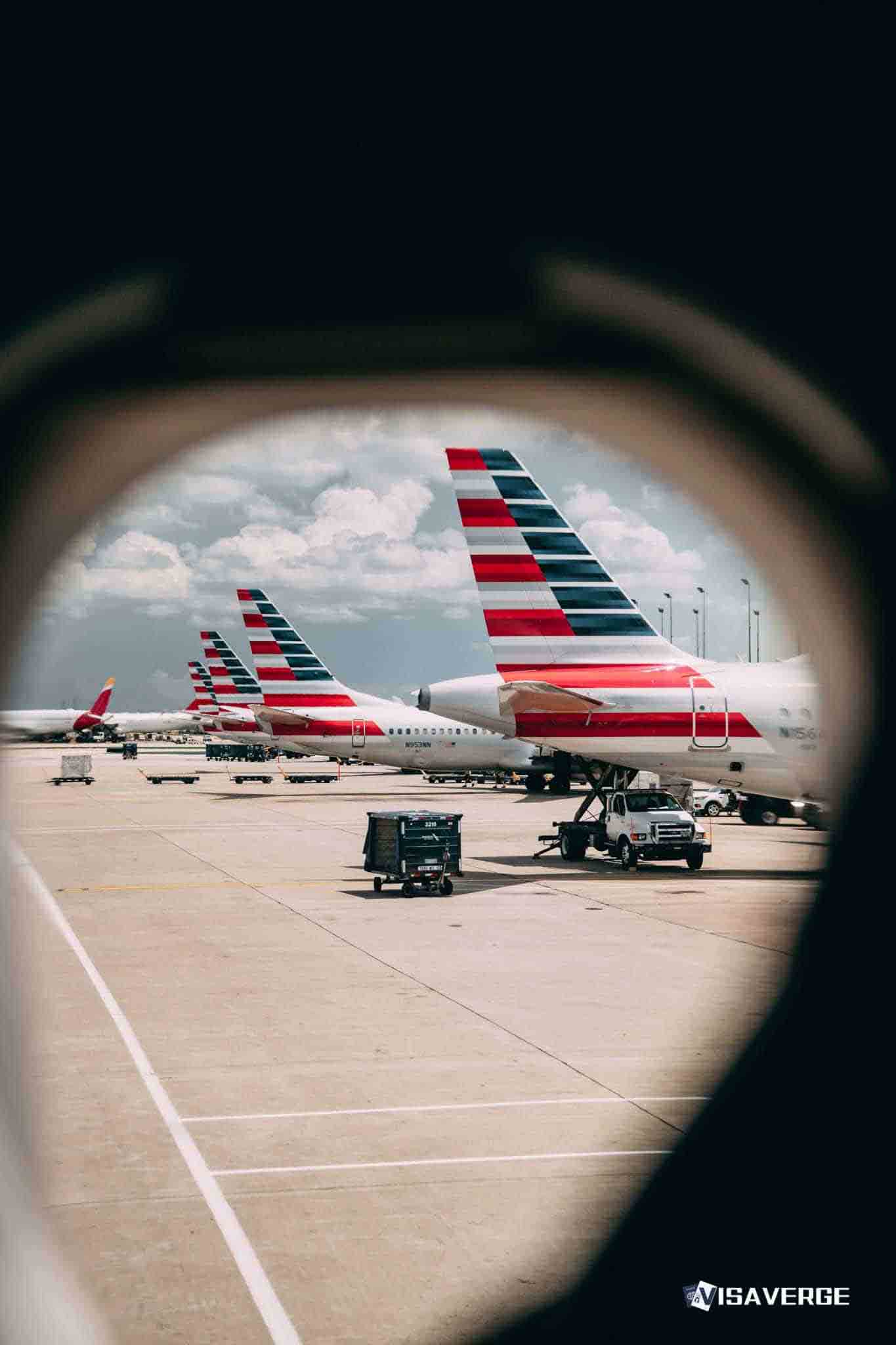(UNITED STATES) Airlines must provide cash refunds to passengers when flights are canceled during a government shutdown, federal officials and consumer advocates said, underscoring that the obligation applies regardless of the reason for the disruption.
The rule covers airline cancellations triggered by shutdown-related staffing shortages, air traffic control constraints, or FAA directives, and it applies whether a traveler booked directly with the carrier or through a travel agency. The U.S. Department of Transportation says a cancellation by the airline gives passengers the right to their money back, not a voucher, if they choose not to take rebooking or alternative travel offered by the carrier.

What the Department of Transportation requires
The Department’s policy, long in place for airline cancellations, continues during any government shutdown without changes. That means travelers facing canceled itineraries due to reduced schedules or FAA-mandated adjustments remain eligible for full refunds of the ticket price when they decline a different flight.
Consumer groups stress that this baseline rule is clear: airlines cannot require customers to accept credits or miles in place of cash. The Department’s guidance makes no exception for shutdown-related disruptions, placing responsibility on carriers once a flight they control is no longer operating.
Timing deadlines for refunds
Officials remind passengers that the timing of refunds is regulated and must be met even during a shutdown:
- If a ticket was purchased with a credit card, airlines must deliver the refund within 7 business days once it is approved.
- For tickets paid with cash, check, or other non-credit forms of payment, carriers must refund within 20 calendar days.
These deadlines matter because staffing constraints during a shutdown can ripple across operations. Even when disruptions trace back to government functions, the refund clock is the airline’s to meet after it cancels a flight.
What refunds do — and do not — cover
Travelers should be aware of the scope of the refund obligation:
- The Department’s rules require airlines to refund the unused ticket when the airline cancels.
- The rules do not require airlines to cover associated costs such as meals, hotels, or other expenses tied to government shutdown cancellations.
- While some carriers may offer goodwill gestures, federal policy does not force them to provide money beyond the refund of the unused ticket.
Consumer advocates warn passengers to read offers carefully because travel credits can expire or carry usage limits that cash refunds do not.
Accepting alternatives vs. keeping the right to cash
During shutdown periods, schedules can change quickly, and some travelers accept rebooking to keep their plans alive. The Department’s guidance states:
- If a passenger accepts an alternative flight, the carrier’s duty to provide a cash refund for the canceled segment usually ends because the traveler has taken the substitute service.
- Accepting a voucher typically waives the right to cash, so advocates advise travelers to choose carefully if their goal is a refund.
Key takeaway: The moment a carrier offers a voucher or credit is often the point where passengers must decide — accept a substitute service or preserve their right to a cash refund.
How to get a refund and what to do if a carrier delays
Airlines must issue refunds automatically when a flight they cancel cannot meet the original service and the customer rejects rebooking or credits.
If a carrier does not act on its own:
- Contact the airline and request the refund based on the Department’s rule.
- If the airline still fails to pay within the required timeframe, file a complaint with the Department of Transportation’s Aviation Consumer Protection unit.
According to analysis by VisaVerge.com, travelers have continued to rely on this DOT channel during shutdown-related turbulence when carriers fall behind on payments or steer customers toward vouchers.
Who reiterates the rule
Organizations like FlyersRights emphasize that the refunds baseline remains intact in a shutdown and that passengers should not feel pressured to accept travel credits in place of money.
- They note airlines are allowed to offer alternative flights, and many customers may prefer that option.
- But the law draws a clear line: when the airline cancels, the customer chooses between a refund or the substitute service.
- These rights extend to bookings made through online travel agencies and brick-and-mortar travel agents, so the path to a refund is the same even if an intermediary issued the ticket.
What the refund should include
If an airline cancels for any reason — including government shutdown implications, staffing issues, or FAA orders — passengers who do not travel on an alternative flight are entitled to a full refund. That includes:
- The base fare
- Any fees for services not received, such as seat selection or baggage, when connected to the canceled service
The policy aims to ensure travelers do not bear the financial risk of airline cancellations, even in periods of nationwide strain. Airlines cannot condition repayment on accepting coupons or future travel credit.
Practical tips for passengers
- Expect mixed messages: customer service agents may offer incentives to take a voucher or rebook, and email notices sometimes push credits first.
- Be firm if you want a cash refund and cite the long-standing DOT rule on canceled flights.
- If the carrier resists, escalate through formal complaint channels. The Department’s refund guidance is published for public reference, and officials encourage consumers to seek help if payment does not arrive on time.
Remember the processing timelines:
- 7 business days for credit card purchases
- 20 calendar days for other payment methods
Delays beyond those windows can be reported to federal authorities. Airlines can face heavy workloads in a government shutdown, but that does not pause their repayment duty when they cancel flights. According to consumer advocates, diligence by passengers often speeds up sluggish systems.
Where to find authoritative information
For authoritative details on these rights, the U.S. Department of Transportation posts clear rules on refunds for canceled flights, including during a shutdown. The agency’s resource explains the conditions that trigger repayment and how consumers can seek help if an airline does not comply.
The Department’s guidance is available here: U.S. Department of Transportation – Refunds.
VisaVerge.com reports that travelers frequently cite this page when asking carriers to process refunds after airline cancellations tied to a government shutdown, a step that can cut back-and-forth and lead to faster outcomes for families and workers trying to recover their travel funds.
This Article in a Nutshell
The U.S. Department of Transportation requires airlines to issue cash refunds when carriers cancel flights, including cancellations tied to government shutdowns. Passengers who decline rebooking or vouchers are entitled to full refunds covering the unused base fare and related service fees. Refunds must be processed within 7 business days for credit-card purchases and 20 calendar days for other payments. Airlines are not required to reimburse incidental expenses like hotels or meals. Travelers should request refunds from carriers and file DOT complaints if deadlines are missed.













